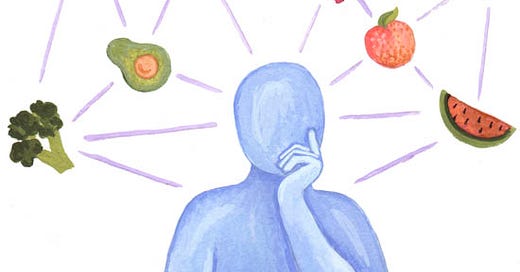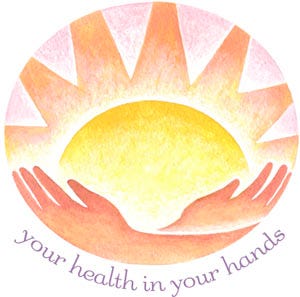Illustration © D. Yael Bernhard
Dear Readers,
I’d like to start this article by bringing two options on this webpage to your attention, as it’s come to mine that many eyes are skipping over them.
First, there’s the “Listen now” function that enables you to listen to this article rather than read it. For my first 8-10 articles, the only way to listen was the little icon that looks like headphones. See it? Click on that and you’ll be able to listen to the article, read to you by an automated voice. Then I discovered I can make recordings in my own voice (called “voiceovers”), which you can start by clicking on the blue triangle at the top of this article. Depending on your computer or cellphone, it may say “Listen now” or “Article voiceover” near the progress bar that shows the length of the voiceover.
Second, there’s the “Upgrade Now” button (if you already subscribe) or “Subscribe” button. It looks like this:
Each of my articles takes 8-12 hours to research, write, illustrate, and record. Much thought and many years of education and experience go into my work. If you’ve been reading my articles and value the content, please consider contributing. I’d like to keep this optional, so that everyone can continue to access my articles. An annual subscription costs just $5/month. You can contribute more or less, if desired. If everyone chips in a little, that will enable me to keep doing quality work, which I hope will benefit all my readers.
Your support is deeply appreciated!
As a professional writer, illustrator, educator, herbalist, and health coach, I strive to empower people to improve their lives. Nutrition is the biggest piece of the epigenetic pie that determines your gene expression – that is, how the DNA you were born with will manifest. Other influences are exercise, sleep, relationships, spiritual connection, and sense of purpose. My primary passion and area of expertise is nutrition, including herbal (and fungal) nutrition and medicine. As a certified integrative health coach, I’m trained to help people reach their goals, whether this means balancing blood sugar, lowering cholesterol, losing weight, improving sleep, reducing inflammation, or establishing exercise routines – all of which are inextricably connected to nutrition. All spokes on the “wheel of health” help it turn.
The food you eat creates all the systems in your body, and determines how well those systems function on a daily and hourly basis. That’s easy to comprehend – but understanding a nutrition concept is one thing; putting it into practice is quite another. Many people do not know when a nutritional concern applies to them. Walking in the woods with a friend recently, I discovered she suffers from eczema, an autoimmune disease in which the body’s immune system attacks the skin. I asked her if she eats gluten, and explained it was a common cause that contributes to many autoimmune conditions.
My friend stopped on the trail and looked at me. “Wait,” she said, furrowing her brow, “I get how gluten works – but it never occurred to me that this actually applies to me.” It was as if a lightbulb in her head had just lit up, and suddenly she realized that what affects so many others may be affecting her. Not only that, but her symptoms might be signals from her body that she needs to take a complete break from gluten for a few months to see if the chronic inflammation in her skin subsides.
This sort of confusion is understandable, as gluten sensitivity and leaky gut can manifest in numerous ways. The signals our bodies give us don’t come with subtitles. Autoimmune conditions are complex, and may have a psychological component, too. Doctors who are used to thinking in well-defined categories may not connect the dots. And without an official diagnosis, many people are left scratching their heads – or in this case, their entire body.
So how do you know when it’s time to give up gluten or sugar, soda or fruit juice, pizza or peanuts? We live in a sea of cultural confusion when it comes to diet and health. We walk around with unsubstantiated beliefs such as “since everyone else eats this, it must be okay” or “I’ve been eating this all my life, so it can’t be affecting me” or “as long as I don’t eat too much of this, it won’t hurt me.” But some foods, such as high fructose corn syrup, chocolates containing cadmium, and trans fats are harmful even in small quantities. Our bodies haven’t signed a contract with us agreeing to tolerate a certain amount. Self-assessment is often hopelessly subjective, and like gerrymandered voting districts, the boundaries we draw around our habits zigzag around our desires.
This is where health and nutrition coaching can help cut through the confusion. It can be very clarifying to get some objective input. Almost everyone would benefit from reducing or even eliminating sugar and refined starch from their diet. That might sound extreme, but it’s much more the rule than the exception. Beyond that, dietary considerations are as personal and varied as people are individual. Context is everything, as we don’t cook or eat in a vacuum, but in family and societal cultures. A skilled assessment of your diet and lifestyle reveals your priorities and values, your desired health goals, your resources and tools for reaching those goals, your most likely setbacks, and your strategies for dealing with obstacles along the way. There are many ways to climb a mountain, and though it’s ultimately you who must put one foot in front of the other, a good health coach can help you draw the right map and pack the right provisions to sustain you on your journey.
If you think individual health and nutrition coaching may be beneficial for you, I invite you to respond to this article with your specific interests or concerns, and I’ll be happy to send more information. My rates are reasonable and affordable, and I offer a sliding scale.
In the meantime, please help make this newsletter successful by supporting it with contributions and sharing it with your friends and family. Since we all have food in common, let’s turn the tide toward a common understanding of truly good nutrition, and how to practice the art of health.
To your good health –
Yael Bernhard
Certified Integrative Health & Nutrition Coach
Yael Bernhard is a writer, illustrator, book designer and fine art painter with a lifelong passion for nutrition and herbal medicine. She was certified by Duke University as an Integrative Health Coach in 2021 and by Cornell University in Nutrition & Healthy Living in 2022. For information about private health coaching or nutrition programs for schools, please respond directly to this newsletter, or email dyaelbernhard@protonmail.com. Her art newsletter, “Image of the Week,” may be found here. Visit her online gallery of illustration, fine art, and children’s books here.
Information in this newsletter is provided for educational – and inspirational – purposes only.






